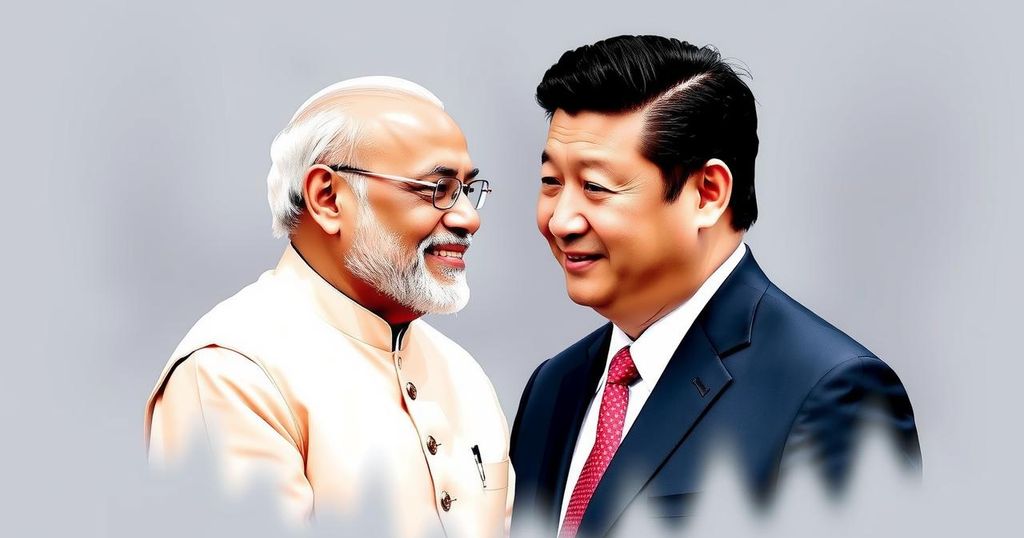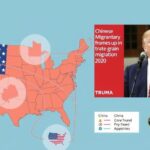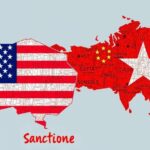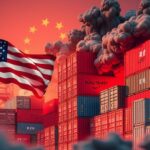India’s Worries Over Trump’s Inconsistent Stance on China
India recently protested against China’s creation of new counties encompassing disputed territories in Ladakh, highlighting tensions following their October detente. The bilateral relationship faces uncertainty with President-elect Donald Trump, whose fluctuating stance towards China may complicate India’s own strategic positioning. Analysts express concern that either extreme in Trump’s policy could adversely affect India, underscoring the delicate nature of Indo-China relations.
Following a prolonged border standoff, India and China reached an agreement in October 2023, aimed at easing tensions. However, recent developments concerning territorial claims have raised concerns in India about the potential volatility of this agreement. The Chinese government’s recent decision to establish new counties encompassing areas claimed by India has reignited diplomatic tensions. New Delhi promptly expressed its disapproval, stating it will never recognize the illegal Chinese occupation of Indian territory.
This incident exemplifies the precariousness of the status quo along their disputed borders, especially as the geopolitical landscape remains influenced by the incoming administration of United States President-elect Donald Trump. Throughout his previous term, President Trump engaged in a trade conflict with China, publicly expressing a willingness to impose high tariffs on Chinese imports, creating unease in India’s strategic circles. Despite expressing admiration for Indian Prime Minister Narendra Modi, Trump also indicated potential tariffs against India, further complicating the international dynamics.
As Trump prepares for his inauguration on January 20, his approach appears to fluctuate regarding China, influenced by business ties and the interests of close allies such as billionaire Elon Musk. Such shifts in policy may unsettle India, making analysts wary that Trump’s shifts may prioritize U.S.-China relations over those with India. Jayant Prasad, a former Indian diplomat, highlighted that Trump has a tendency to foster positive relations with adversaries while causing distress among allies.
Eventual interactions, such as Trump extending an invitation to Chinese President Xi Jinping, but not to Modi, raise questions about U.S. commitments to India in the coming years. The potential for an aggressive anti-China policy or a conciliatory deal with Beijing poses significant risks for India, as Christopher Clary of the Stimson Center articulated, suggesting that these scenarios could force India into undesirable policy decisions.
The dual risks emerging from these dynamics compel Indian leadership to maintain a cautious stance. India has enhanced scrutiny of Chinese investments and infrastructure initiatives post-border clashes, though reports indicate a potential reconsideration of attitudes toward Chinese capital amid a global economic slowdown.
India endeavors to navigate the uncertainty surrounding Trump’s foreign policy, with Prime Minister Modi potentially hosting a Quad meeting in 2025 aimed at reinforcing partnerships in the Indo-Pacific region. However, as Trump has shown fluctuating behavior towards China, it remains crucial for India to ascertain the future direction of U.S.-China relations, notably whether established strategic alignments can endure amid changing leadership priorities.
The geopolitical tension between India and China has historical roots, particularly concerning territorial disputes in regions such as Ladakh. After years of military standoffs, recent diplomatic efforts led to a fragile truce, the sustainability of which now faces challenges due to external influences, notably from the United States under changing administrations. The uncertainty surrounding U.S. policy towards China and India is particularly timely, given Trump’s unpredictable approach to foreign diplomacy, complicating India’s strategic calculations.
In conclusion, the evolving political landscape poses significant challenges for India as it navigates its relationship with China amid the shifting policies of the United States under President-elect Donald Trump. The ambivalence in U.S.-China relations could either compromise India’s strategic positioning or present unforeseen diplomatic challenges. As such, India’s leadership must stay vigilant and responsive to these global power dynamics to safeguard its national interests.
Original Source: www.aljazeera.com








Post Comment